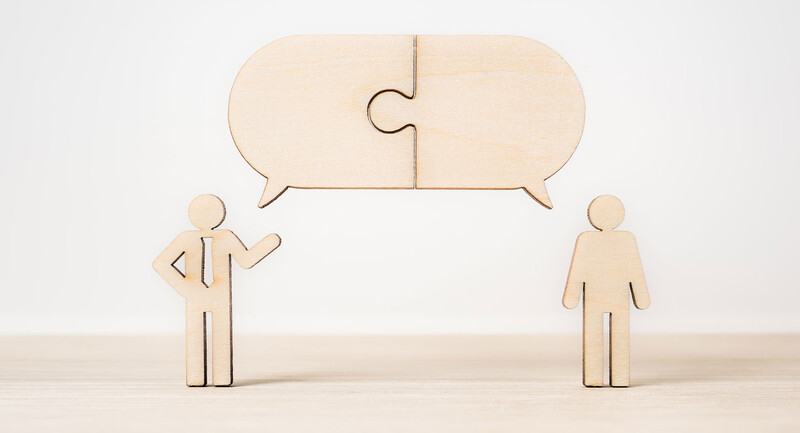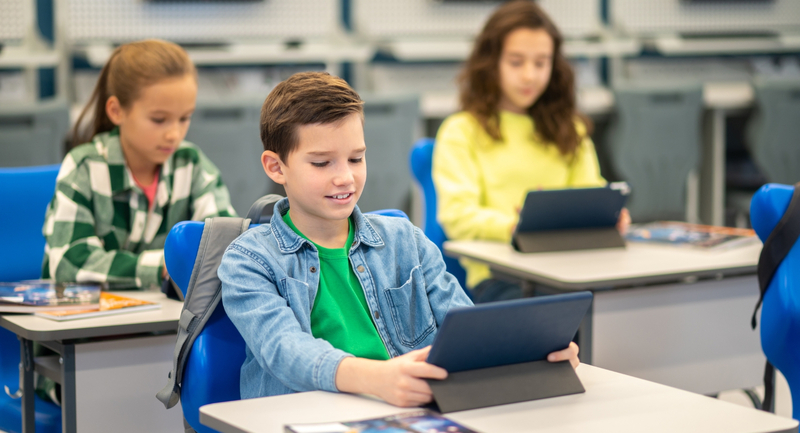Education stakeholders may disagree on a plethora of issues: Should students use cell phones in class? How much technology is too much technology? What about students wearing hats in school? The topics that can lead to contentious debates among educators seem endless, and sometimes teachers and principals see things quite differently. (I quickly learned this during my first year as principal when I naively told the faculty that weekly student assemblies were a good idea.)
But there is something that teachers and principals can agree on: Students learn best when caregivers and educators communicate effectively with each other and collaborate to produce positive outcomes. This synergy doesn’t occur by accident or without intent. In fact, many intentional practices foster positive school-family relationships, from school halls with areas for visitor seating, to value-based messages on classroom and corridor walls, to periodic newsletters.
But the foundations of positive relationships are the interactions that take place when parents or guardians and educators meet to talk about a student’s progress and challenges in parent-teacher conferences. In this area, much more could be done. I am always amazed to learn that principals devote so little time to training and supporting teachers in hosting productive teacher-caregiver meetings.
I teach a class on school culture for prospective principals at the University of Missouri-St. Louis, for example, and the students are usually current teachers working on a master’s degree in educational leadership. There is general agreement about the importance of school-home relationships, but when I talk about how school leaders should prepare teachers for parent-teacher conferences, I am met with surprise because this isn’t usually something they have considered. Rarely—maybe never—has a student told me that parent-teacher conferences have been a topic in their PD experiences or, for that matter, during their undergraduate teacher preparation program.
Making Time to Really Listen
Good communication is the basis of a successful parent-teacher conference, and this means that communication must be two-way. Too often we educators do a really good job of telling; conversely, too often we don’t listen as much or as well as we should. Making and taking the time to listen is difficult, I know, because of how conferences are structured. First, no matter how well we plan out what we will say, parents often come to a conference worried that they are going to hear something negative about their child. That’s never easy, even if they hear many more positives. Regardless of how well we phrase the problem, parents usually feel that their child’s difficulties reflect on their parenting skills or genes, often both!
Second, rarely is sufficient time allocated for a parent-teacher conference. Too many elementary and middle schools offer a conference day that features back-to-back-to-back 20-minute conferences, and that just isn’t enough time for teachers to listen and to share positives and areas of student growth. (Just like I don’t want to visit my dentist during her last appointment in the day, I wouldn’t want to meet my child’s teacher at 8:30 p.m. after she has had 23 conferences.) In secondary schools the time issue is even worse because teachers have many more students and usually only time to host 1:1 conferences if there is an issue to address. If a teacher has a manageable number of students, principals need to find places in the school schedule for these 1:1 meetings, even if it requires scheduling them over a week or two.
Using Empathy and Clarity
Effective conferences are based on the principles of good communication that occur in every relationship: empathy and clarity. Empathy begins with making an effort to know and understand the other person. To make progress in this area, leaders can offer the following reminders to their teachers.
After thanking the parent(s) for coming, every conference should begin with a simple empathic question, “How are you doing?” or “How’s it going?” and then—this is key—we need to wait for a response. We need to wait, nod, and ask for a bit of elaboration: “What do you mean?” Yes, time is fleeting, but we need to establish that we care and want to know about them as people.
As actor and bestselling author Alan Alda said in a PBS NewsHour interview, “One way you get trust is through good communication.” It is important to listen to and “read” the other person. In Alda’s book, If I Understood You, Would I Have This Look on My Face? (Penguin Random House, 2018), he writes, “Communication doesn’t take place because you tell somebody something. It takes place when you observe them closely and track their ability to follow you” (p. 17).
To leave the necessary time for caregivers to speak, we need to have carefully planned what we want to share, including any data or samples of student work. One-way communication is not good, period. We want to show that we respect the caregivers by making sure that we hear from them. I found it helpful to set these types of parameters at the start of the conversation: “Our time is limited because we need to end at 1:20, so I will share what I have seen until 1:10, and then I want to hear your thoughts and questions.” It is also essential that we take notes when caregivers talk; failing to do so tells them that their thoughts aren’t valued.
Effective conferences are based on the principles of good communication that occur in every relationship: empathy and clarity.
Another important aspect of preparing for parent-teacher conferences is soliciting feedback about these meetings and using the data to plan for the future. After conferences, both caregivers and teachers should receive a survey that asks if they feel the conference was helpful and productive and if they have any suggestions for the future. (Indeed, this survey should be one of a series of surveys that school leaders send throughout the year, as I wrote in a recent post. I go into more depth on this in my book, The Principal as Chief Empathy Officer. Surveys are addressed in Chapter 5, “Empathy and Conflict,” because their use can be helpful in avoiding and ameliorating conflicts.)
Finally, school leaders need to help teachers prepare for conferences by using role-plays and providing opportunities for teachers to share their conference strategies. As I noted in my “Principal Connection” column in Educational Leadership years ago, spending PD time planning parent communication is a worthwhile investment. Effective parent-teacher conferences benefit everyone.
It's always important to have empathy—to consider how another person feels about a situation—and that's especially the case in a parent-teacher conference. We need to remember that what people hear is framed by how we say it.
The Principal as Chief Empathy Officer
A principal's skills, knowledge, and experience are important when it comes to leading schools. But principals also need empathy to be effective and drive continuous improvement.









